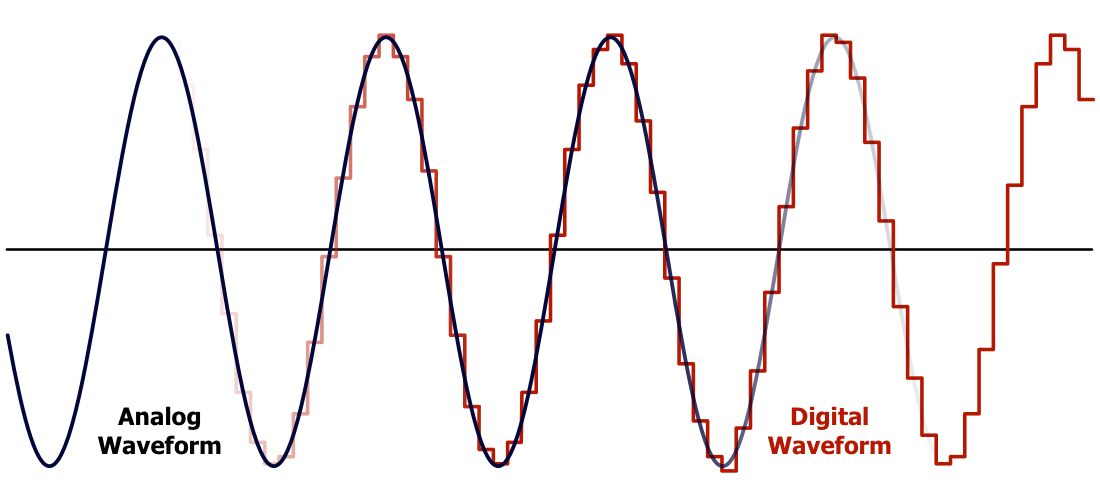PCM
Stands for "Pulse-Code Modulation."
Pulse-code modulation is a process that converts analog audio into digital audio. It samples the amplitude of an analog audio signal at regular intervals, then rounds each sample to the nearest pre-set digital amplitude level. It is the standard method for converting analog audio into digital audio for CDs, computers, and digital voice communication.
There are two variables involved when PCM sampling an audio signal. The first is the sample rate, measured in kilohertz (kHz), which is the number of times per second the signal is analyzed. The second is the bit depth, which sets how many possible digital values can represent that sample. When a sample is analyzed, a process called quantization converts the amplitude to the nearest digital value. A higher bit depth provides a wider range of digital values, and the closer the quantized value can get to the actual value. For example, audio on a CD is sampled at 44.1 kHz and has a bit depth of 16 bits per sample. A bit depth of 16 bits provides 65,536 possible amplitude values.

PCM was first widely used to digitize voice telephone communications to make it easier to transmit over long distances without any signal loss. The Digital Signal 0 (DS0) specification, originally set back in the 1960s and still used today, digitizes a phone call at 8 kHz at 8 bits per sample for a bitrate of 64 kbps.
NOTE: Uncompressed PCM audio is stored in several different file formats, including .PCM, .WAV, and .AIFF.
 Test Your Knowledge
Test Your Knowledge